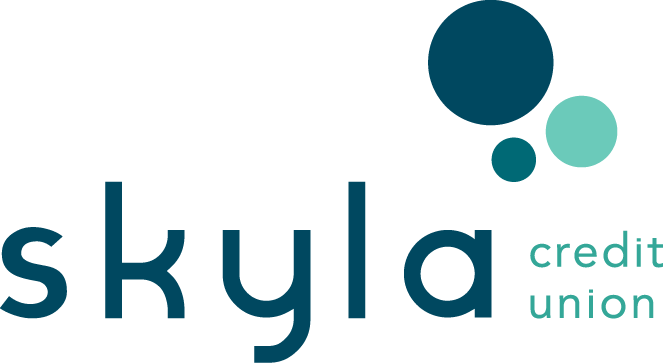How Do You Build Credit Without Going Into Debt?
.png)
Some people don't realize a problem with their credit score until it's time to apply for a loan. Then, the most recommended way to increase your score is to take out more loans to prove to lenders you’re responsible. But what if you just can't afford to get another loan - then what?
Welp, the notion behind adding on more debt to increase a credit score just seems sooo backwards. Thankfully, that’s not the only route to take in boosting a credit score.
Phew!
Long before I started working in the financial industry, my credit score was so embarrassingly bad due to numerous student loan accounts being past due, making credit card debt was hard to pay off because the interest rate and fees kept getting added on to my monthly balance. Ultimately, I was racking up debt left and right.

On top of that, I was desperate to increase my credit score without taking on more debt. All while this was happening, I needed to move and having a good credit score helps tremendously when looking for a place to rent. Plus, I felt like my financial reputation was terrible. Who will trust me with another loan?!
So I took a step back to find what worked for others and what could work for me and talked with a financial advisor to see how I can avoid this from happening in the future.
Today, I'm happy to share some good habits that helped my credit score increase which ultimately improved my financial life, like getting a mortgage with a low-interest rate. My student loans and other old debt holding my credit score from thriving are paid off and no longer an issue.
QUICK TIP: When building credit, the process can take time and consistency since credit scores don't increase overnight. |
here’s a quick look at what we’ll cover
How do you build credit without going into debt? |
 how do you build credit without going into debt?
how do you build credit without going into debt?

Many people care about their credit score because they want to be able to take out a loan if they need to purchase a car or house, cover an emergency expense, or have a larger cash flow to be able to make larger purchases like the furniture to set up a new place. Having a good score could also help when you're looking to rent your next place. But taking on more loans to build a credit score is not the only way. Here's what you can do:
identify any errors on your credit report
Let's start with fixing any errors on your credit report. It's possible to find incorrect account information like your name and address listed wrong on your credit report. Or worse, you could find errors like an opened account that was reported closed to vice versa or see on-time payments reported late or delinquent on your credit report.
QUICK TIP: Free credit score sites like Credit Karma are convenient if you want a rough estimate, but they are not an accurate representation of your score. As you work to build up your score and check on the scores health, make sure to use one of the three reporting bureaus to do so, since that’s what lenders will look at when you apply for future loans. |
You can order your free reports here. If there is any incorrect information that can negatively affect your scoring, contact the credit bureau and the organization that provided the wrong information to the bureau. Here is more on how to fix errors on your credit reports.
PAY OFF EXISTING LOANS
Start here if you have an existing loan! Whether it's an auto loan, credit card balance, mortgage, or any other tradeline, pay the debt you currently have. This is a great way to build your credit. The notion of getting a loan and paying your monthly balance when it's due gets reported to the credit bureau, which goes towards your credit history.
As you're paying down your debt, especially revolving debt like credit cards, personal lines of credit, or HELOCs, make sure you pay on time or in advance. If possible, try to pay more than the minimum balance - paying more doesn't necessarily increase your credit score, but you can avoid paying more interest which will save you money.
Have rent payments reported to the credit bureaus
Yes, landlords look at your credit history when you apply since it tells them whether or not you’ll default on paying your rent. But making monthly rent payments doesn't regularly count towards your payment history until recently.
You can sign up to use a credit reporting service that reports your rent payments to the bureaus. This is an option when you don't have a credit history. Services like Experian RentBureau, Rental Kharma, and Rent Reporters can help. Since these are services, there may be a sign-up or monthly fee. Either way, it's worth checking out if you want to get credit for something you’re already paying for!
become an authorized credit card user
Say you have a loved one who has a credit card, you could be added to their card as an authorized user. Once you're an authorized user, you get a card too and make charges, but since your loved one is the owner of the card, they are the one who is ultimately responsible for the account and the one to repay the lender. (Just make sure your loved one is comfortable with adding you to their card and you work out an agreement to pay them back for your charges before you start swiping!)
Once you're added, activity will be reported to the bureau, and positive activity can help boost both of your credit scores. Woohoo!
Get a secured credit card
I know, I know… the point was to list ways to boost your credit score without a credit card but hear me out. A secured credit card works a little differently than a regular - or unsecured - credit card.
This credit card was created for anyone looking to build or establish their credit - so it’s perfect. The lender requires you to give them a cash security deposit with a secured credit card. The deposit is collateral to open the account, which means you'll be less of a risk to loan money to, and the lender will be more than likely to approve you for the secured credit card. In addition, the loan you receive from the lender will be your credit limit.
Many lenders have requirements when applying for a secured credit card, like the cash deposit may range from $300- $500 or more. Overall, here is what you can expect with a secured credit card.
QUICK TIP: If you can find a lender that doesn't have strict credit card requirements, you can get a regular unsecured credit card, and just not use it. I recommend this if the lender doesn’t charge fees like activity fees or inactive account fees. Ultimately, adding a credit card can add to the mix of credit you have which can help your credit score. |
 it's time to build some good credit habits
it's time to build some good credit habits

Building your credit score does help you financially, but you don't have to take out another loan to improve it. When you do the actionable steps above, you'll see an improvement in your credit score over time. Here are some habits you can do to help your credit score.
- Check Your Credit Report Often: And check it from one of the reporting bureaus. You can order your free reports here. Again, if there is any incorrect information that can negatively affect your scoring, contact the credit bureau and the organization that provided the wrong information to the bureau. Here’s more on how to fix errors on your credit reports.
- Pay On-Time: Missed or late payments can have a major negative impact on your score. A 30-day late payment could decrease your score by 60 points.
- Get Current: If you’re behind on your payments, get current and try to stay current. Your score should increase the more you’re on time.
- Keep Balances Low: On revolving credit, such as a credit card, make sure to keep your balance low. You should also try to keep your utilization under 30%.
- Be Responsible: Credit cards and installment loans help build credit, but lenders need to see a score that reflects responsibility. Don’t open a line of credit unless you’re confident you can manage it.
If you need help with your loan payments, we have some helpful tips to track your spending.
If you have a credit card specifically and are looking for help with getting current with your payments and want to keep your balances low, you can start trackin' here.
There is so much more to know about your credit score and how it works, so I do a deeper dive into what you need to understand about credit scores. Make sure to check it out:
HAVE MORE QUESTIONS ABOUT your credit score? WE'RE HAPPY TO ASSIST
If you have any questions or comments, our Customer Service Representatives are here for you. You can send an email, give us a call at 704.375.0183, or visit any of our branches.
As Content Strategist behind the Learning & Guidance Center, Yanna loves showing just how doable finance can be. Whether it’s simple tips, step-by-step guides, or comparison charts, she’s passionate about helping readers take charge and reach financial freedom with confidence
more resources for your financial journey
How to Get Back on Track With My Finances?
Getting back on track with finances can seem impossible, especially if spending money is easier than saving. Whip your finances back in shape with these can-do money-saving tips.
12 min. read
What's the Most Important Thing to Understand About Credit Scores?
Need help understanding your credit score? Here’s what’s most important about credit scoring and the steps to take to improve it.
9 min. read





